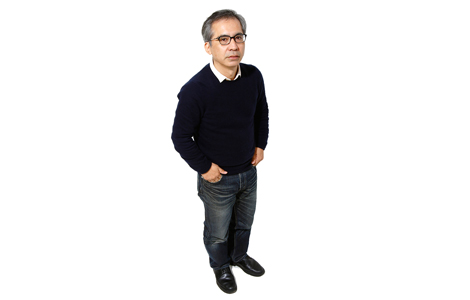TOMOTSUNE Tsutomu

- 役職/
Position - Professor at Institute of Japan Studies
- 研究分野/
Field - Area Studies in Japan / Intellectual History of Japan
Looking beyond issues of discrimination to conduct multi-faceted research on minorities
One of my research fields is the intellectual history in Japan from the Tokugawa period to the modern period. I have recently been holding a research group with a number of specialists on movements in politics, art, and culture from the 1960s to the 1970s, and plan to publish a book compiling the fruits of our research.
The social movements we are investigating naturally also had subtexts aimed at protesting certain causes. In this sense, at their foundations they are closely connected with movements that are still going on today, such as activities by prison and death penalty inmates to demand their rights or people with physical disabilities who seek the right to be a part of society. This is the kind of perspective we adopt in our observations.
I also research Japan's minorities, with a focus on the hisabetsu buraku ("discriminated communities"). My research addresses not only the fact that the buraku have long been the target of discrimination, but also that historically they have played a role in religious and folk customs in their local communities. On this basis, I investigate a broad range of areas, from religion to the performing arts.
I have recently also been carrying out comparative research of the buraku and the discriminated Dalit castes of South Asia. This has highlighted the fact that there are similarities between Japan and India, despite the vast geographical distance between them. The discrimination of both the buraku and the Dalit essentially arose from the fact that they were engaged in work related to liminalities such as death and kegare (defilement) that temples and shrines could not be involved in. For example, if an animal's carcass was drifting in the river, they were responsible for disposing of it, or if a festival is to be held in the area, they would carry out a purification rite beforehand. These were in fact their primary roles, which then developed in to secondary jobs such as making leather or working as street entertainers.
TUFS provides a rich environment for conducting such research aimed at drawing comparisons with other regions of the world. With programs in 27 different languages, the university campus is like a small global society. In such an international setting, if we are able to successfully develop links with researchers in other fields, we can engage in ever more creative and productive research.
The lectures for the master's program in Japan Studies starting in April 2016 will address the intellectual history in Japan from the Tokugawa period to the 1964 Tokyo Olympics. As well as the research topics I have mentioned here, I also plan to discuss the reinterpretation of the history of regional society from the perspective of minorities.
The most important skill that students need at graduate level is an open-minded and flexible approach. It is important for students to confront fields that they may have shied away from in the past. I hope that students will have the courage to tackle fields that were previously alien to them. Our role is to demonstrate the stance that is needed to do so, and provide hints in the right direction.




